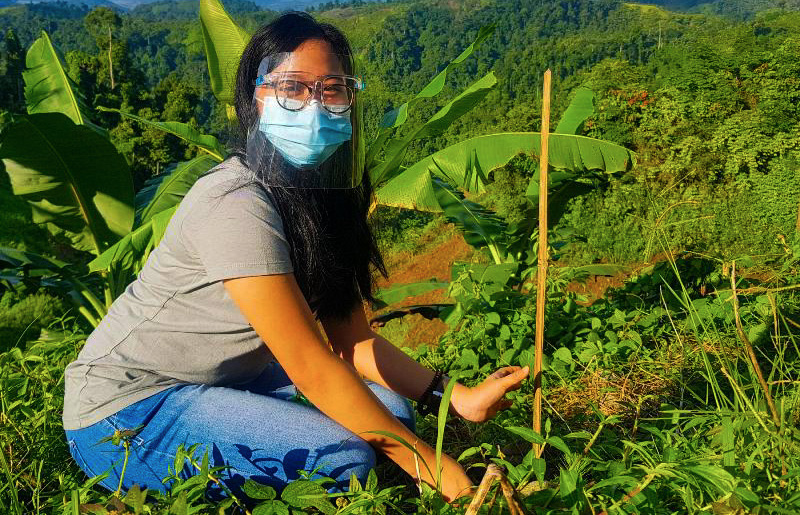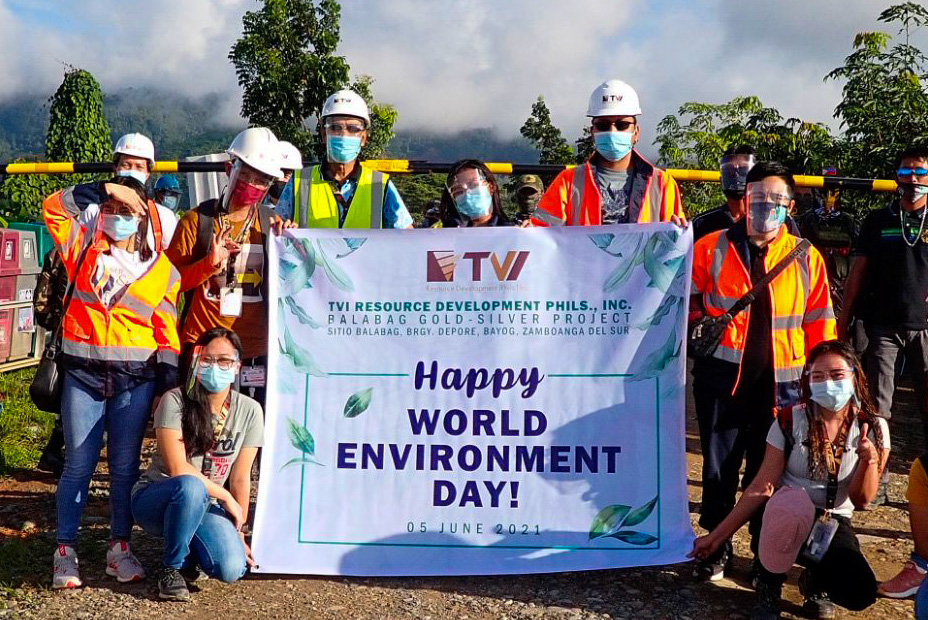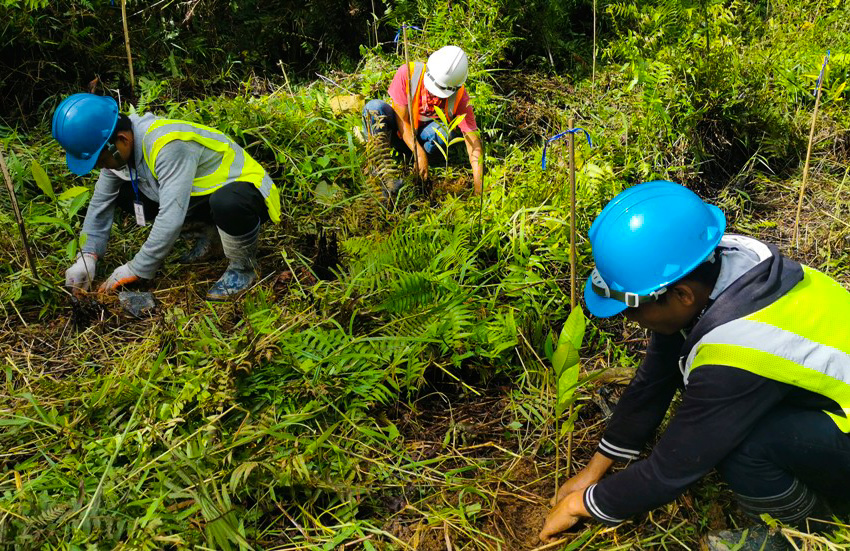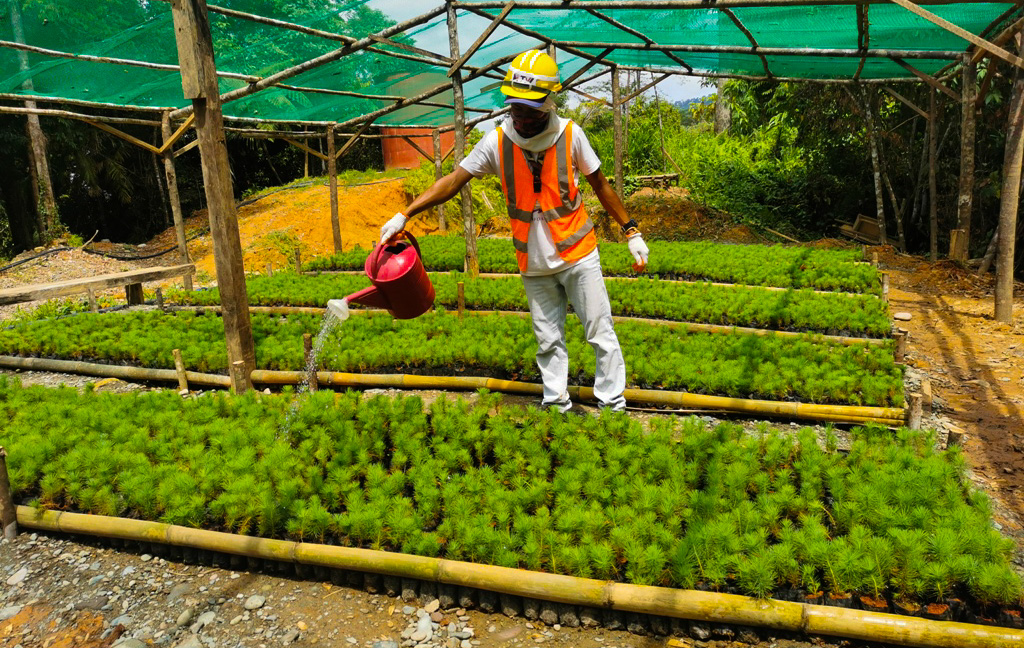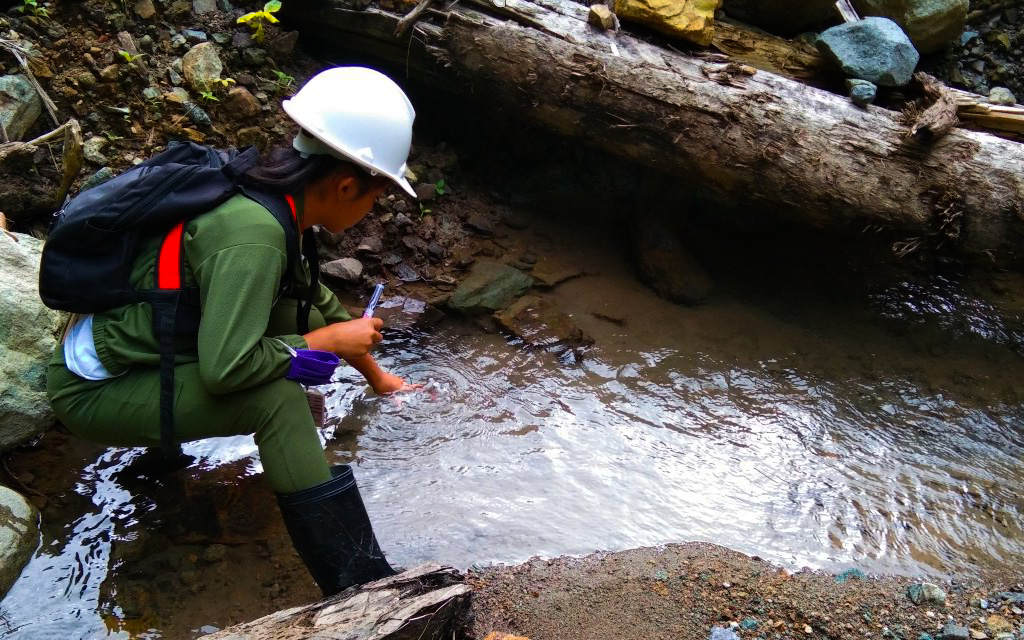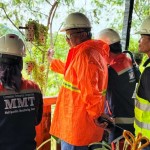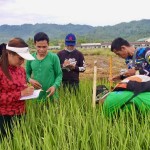-
Restoring greenery. TVIRD marks Environment Month with its traditional tree-planting activity in its Balabag facility. To date, the company has already planted more than 160,000 trees in and around its MPSA area – a far cry from the days when illegal small-scale miners pillaged Balabag’s resources.
-
Engr. Germindas Las Piñas led the commemoration of World Environment Day in TVIRD Balabag. The company’s office and field personnel participated in the event, including the tree-planting activity that followed.
-
TVIRD's environment crew is seen here performing routine work - planting trees and cover crops to restore the greenery and prevent soil erosion, particularly in landslide-prone areas previously mined by illegal operators.
-
Seedlings are cultivated in TVIRD’s nursery in preparation for rehabilitation and reforestation activities in denuded areas within and around its MPSA.
-
TVIRD’s Environment staff regularly take water samples from rivers and creeks within its MPSA area which are tributaries of Sibugay River. The company’s MPSA encompasses the provinces of Zamboanga del Sur, Sibugay and Zamboanga del Norte.
Reversing decades of abuse from illegal small-scale miners
Bayog, Zamboanga del Sur / July 2021 – Prior to TVIRD’s entry, Dipili River of this town was laden with toxic waste from chemicals, including Cyanide, which were discarded by illegal small-scale miners at Sitio Balabag. In addition, human waste from hundreds of workers and their families were also thrown there, leaving a dead river that festered over time.
To make things worse, the unabated illegal tree-cutting continued to denude Balabag Hill and destroyed the natural habitat of wild animals in the area.
Illegal artisanal mining was the livelihood of many people in this town since the early 90s. People from neighboring towns in Zamboanga de Sur and other Mindanao provinces came in droves to join the gold rush in Balabag – literally “making a killing” (of the environment) in the process.
This wanton activity only came to a halt in 2012 when the Mines and Geosciences Bureau (MGB) issued and implemented a Cease and Desist Order and completely dismantled the illegal facilities through the assistance of the National Bureau of Investigation, the Philippine Army and the Philippine National Police.
The lead agency was able to shut down hundreds of rod mills, seized a backhoe and grader as well as confiscated pregnant carbon.
Since then, TVIRD obtained a Mineral Production Sharing Agreement (MPSA) in this town and started rehabilitating Balabag’s dying environment. As the company commemorates Environment Month, it also looks back on its history in Balabag – and how it has brought its people upon the threshold of prosperity.
Restoring the natural environment
Just months after the government totally dismantled the illegal mining activities, TVIRD immediately commenced its first order of business – which is the rehabilitation of Balabag’s natural environment.
Trees and cover crops were planted, the quality of the water was regularly monitored, and toxic waste from hundreds of shallow tailings ponds were also taken out. Clean-up activities also included the clean-up of Genaro Creek.
In her report this month, Environment Manager Agnes Goze said that the company already planted more than 160,000 trees within and around its 4,779-hectare MPSA area. Of this number, more than five (5) hectares are already fully rehabilitated.
Forester Edward Vincent Borres also said that all rehabilitated areas were initially planted with cover crops to follow plant succession and for soil stabilization. In the rehabilitated areas, various plant species like Vetiver, Mani-Mani, and Setera total almost 300,000.
To mitigate the siltation from ongoing earthworks, TVIRD’s environmental crew constructed several silt ponds at Genaro and Onao-Onao Creeks. Water quality monitoring is also performed daily in both creeks, including Dipili River itself.
“We still have a long way to go. But as Tony Edal (MMT member) said, ‘TVIRD has shown the community its concern. It has programs and projects that aim to restore the environment,’” according to Community Relations Officer Lope Dizon. These programs have the full support of the Subanen tribe and the town’s local government unit.
A dark past
Tony L. Edal, a farmer and representative of the Subanen tribe in the Multipartite Monitoring Team, has witnessed the illegal mining operations in Balabag and vividly remembers how the rich financiers abused the town’s environment.
“Ang mga wastes ug chemicals nga gipundo sa ilang mga dampakan deretso ra nga gipagawas ngadto sa suba. Kini ilang gihimo pagsugod pa lang sa ilang nagmina sa Balabag (The waste and chemicals stocked in their shallow ponds were thrown directly into the river. And they were doing that since the day they started mining in Balabag),” he said.
Aside from Edal, Depore Barangay Chairman Danilo Sauclom, was also a witness of the illegal miners’ deliberate disregard of the environment.
“Illegal miners made Dipili River their dumping site for toxic wastes. Many of them also dumped their waste into Genaro Creek, despite knowing it is a tributary of Dipili River. The creek then was full of plastic cellophane, cans, and bottles,” Sauclom narrated.
Department of Labor and Employment officials in Zamboanga Peninsula witnessed the illegal mining operators’ abuses on its workers, including women and children – particularly children who were small enough to climb in their narrow un-engineered tunnels.
TVIRD officers pledged to its host Subanen tribe that these abuses will not happen again. Balabag’s dark past will serve as a constant reminder to future generations that a clean environment – and a healthy, progressive community – have been achieved through the help of many people who do not take these for granted.
*******

